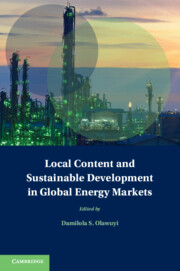This article argues that there is a newer model of contracting for natural resources that expands the potential for corporate responsibility towards those adversely affected by business activities. It lays out the conceptual roadmap and justification underlying these shifts and changes in contracting for natural resources. The article calls for a renewed focus in exploring enforcement of corporate obligations for impacts to individuals and communities within a contractual framework. Examples of this type of arrangements include contracts that can be construed to allow third parties to sue on a contract; community development agreements; contracts between investors and communities; environmental contracts; human rights deeds, and investor–state–local community contracts (tripartite contracts). These contractual forms demonstrate that the law of contract has evolved from the nineteenth century idea that contracts merely protect the rights of investors without much concern for those who are directly affected by extractive industry operations. By including affected communities, indigenous communities, and others, these new contractual forms demonstrate that investors and governments are trustees and that extractive resources must be mobilized for the benefits of their publics. In so doing, we map this turn to contracts between multiple parties in the resource extraction context, and argue that it affirmatively demonstrates real potential to address or mitigate the absence of remedial and responsibility regimes for the adverse impacts of extractive industry activities on individuals and communities.
